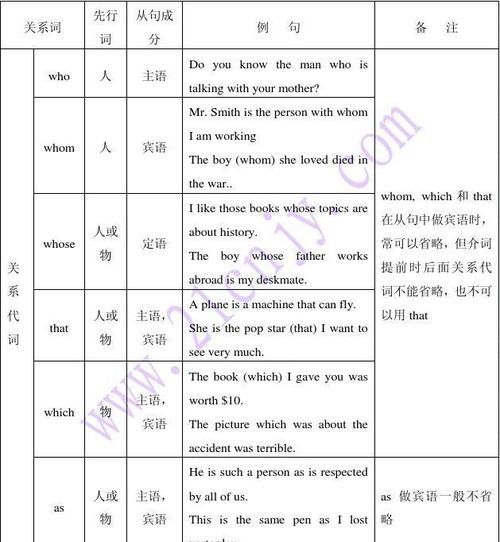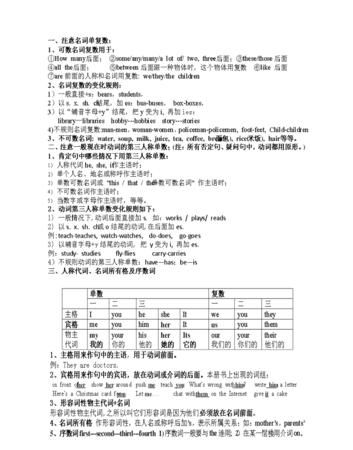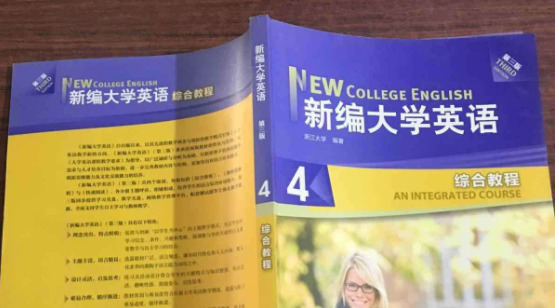本文目录
英语a级考试语法知识点总结
英语对于现在的中国学生来说已经成为了一种重要的语言。英语作为一种语言,本身就是一个系统,需要靠英语语法来规范,接下来我为你整理了英语简单语法知识点,一起来看看吧。
英语简单语法知识点:特殊句型
there be 句型,be going to 结构
1. Be going to 结构,表示打算,准备,计划做某事
结构:主语+be动词+going to +动词原型
I am going to make a bookcase.
They are going to paint it.
The father is going to give the bookcase to his daughter.
变疑问句将be动词移到句首
Are you going to make a bookcase?
Are they going to paint it?
Is the father going to give the bookcase to his daughter?
变否定句在be动词后面加not
I am not going to make a bookcase.
They are going to paint it.
The father is not going to give the bookcase to his daughter.
Yes, I am. No, I am not.
Yes, they are. No, they are not.
Yes, he is. No, he is not.
特殊疑问句
What are you going to do?
What are they going to do?
What is the father going to do?
2. There be 句型:表示哪里有什么东西(某处有某物)
There is+单数名词+表示场所的词(一般为介词词组)
There is a book in this room.
There is a pen on the table
There are+复数名词+表示场所的词(一般为介词词组)
There are two pens on the table.
There are three schools there.
变疑问句将be动词移到句首
Is there a book in this room?
Are there two pens on the table?
变否定句在动词后面加not
There is not a book in this room.
There are not two pens on the table.
Yes, there is. No, there is not.
Yes, there are. No, there are not.
英语简单语法知识点:选择疑问句
选择疑问句:是指提出两个或两个以上可能的答案供对方选择的句式
一种是以一般疑问句的结构形式为基础,只是在语调上有所区别。
例如:Would you like coffee or tea?
这一类选择疑问句通常都是在前一个供选择的答案用低升调,后一个用降调;如果有两个以上供选择的答案,则在最后一个用降调,其余都用低升调。
例如:
Would you like a gin,or a whisky,or a `beer?
你是要喝杜松子酒,还是威士忌酒,还是啤酒?
这种语调上的特征往往是区别选择疑问句和一般疑问句的重要标志。试比较:
Shall we leave at six or `seven?
我们是 6 点动身还是 7点动身?
Shall we leave at six or seven?
我们在6,7点钟动身好吗?
上述第一例是选择疑问句,其答案只能是两者之一。
We shall leave at six/seven.我们将在6点/7点动身。
上述第二例是一般疑问句,它的答案只是 yes/no,而且并不肯定是6点或7点,甚至可能既不是6点,也不是7点:
Yes,we shall leave at six or seven.是的,我们将在 6, 7点钟动身。
No.We must leave earlier.不。我们必须早点动身。
另一种选择疑问句是以特殊疑问句的结构形式为基础的,也是在语调上有所区别。
例如:Which vase shall I use, the short one or the tall one ? The tall one.
在选择疑问句中的冠词用法。
Is she a housewife or a nurse?(她是一个家庭主妇还是护士?)
其中,or后的不定冠词a/an 不能省略。
英语简单语法知识点:特殊疑问句
特殊疑问句:以特殊疑问词开头,对句中某一成分提问的句子。
常用的疑问词有:what who whose which when where how why等。
可先分为3种:
疑问代词:what,who,which,whose,whom
疑问副词:when,where,why,how
疑问形容词:what(which,whose)+名词
特殊疑问句有两种语序
1.如疑问词作主语或主语的定语,即对主语或主语的定语提问,其语序是陈述句的语序:
疑问词(+主语)+谓语动词+其他成分。
如:Who is singing in the room﹖ whose bike is broken﹖
2.如疑问词作其他成分,即对其他成分提问,其语序是:疑问词+一般疑问句语序? 如:What class are you in﹖
What does she look like﹖
Where are you from﹖
What time does he get up every morning﹖
How do you know﹖
注意:
Who is from Canada﹖ Helen (is).
Where's the restaurant﹖ Near the station.
Why do you like koalas﹖ Because they are cute.
2.特殊疑问句一般读降调(↓)。
特殊疑问词
Who谁——Whose谁的(加se)
Why为什么
When什么时候
Where在哪里
Which哪一个
What什么 ( What time什么时间 What colour什么颜色)
How怎么样
How many多少{数量}
How much多少钱{价格},
多少(对不可数名词进行提问)
How long多长
How often多少次
How big多大
How heavy多重{重量}

高一英语语法知识点整理总结
英语语法知识:It be time +(that)从句
在英语里,“It be time +(that)从句”是一个较为常用的句型,它表示“该做……的时候了”的意思。该句型属于主从复合句的一种;其主句部分为"It be time",从句部分的连词that可以省略。以下从三个方面简要谈谈这一句型。
一、time前面的修饰语
句型“It be time +(that)从句”通常暗示“有点迟了”,为了强调这一含义,可以在time的前面加形容词high.例如:
It's high time we started.
It is high time that more women ran the arts.
为了使语气得到进一步的加强,还可以在high的前面加certainly, more than等副词或词组:
It is certainly high time that we ordered dinner.
形容词full也可以加在time的前面,用来加强语气。例如:
It's full time you had a nice day.
It is full time that boy went to herding.
time前面还可以加about,这时句型所表达的意思是“早该……”。例如:
It's about time we started.
It's about time I settled down.
上面两例中的about可以用getting来代替,句意不变;这可以视为句型“It be time +(that)从句”的一种变体。
二、从句中的动词形式
在“(that)从句”中,动词形式通常是一般过去时。这是一种奇特而有趣的语言现象,即用假设的过去时来代替实际的将来时。从英语史的角度来看,从句中的动词形式用过去时原是属虚拟语气;但从语言发展的观点来看,目前这种动词形式视为陈述语气比较合适。
著名语言学家夸克(R. Quirk)教授等人在1985年出版的《英语语法大全》一书中认为,“(that)从句”的动词形式一定要用“假设的`过去时”。他们举了一例:It's time I was in bed.其实,动词形式除常用过去时外,也可以用其他时态和语态(用何种形式应视情况而定)。正如著名语言学家周海中教授在1988年发表的《探讨“It be time (that)…”句型》一文中所言:在现代英语里,“(that)从句”中的动词形式一般用过去时,这是基本规则;有时也可以用其他的动词形式,但应视为特殊用法。他在其文中列举了大量实例,用于论证和说明。
1.用were型虚拟语气。例如:
It's high time I were hence. (W. Shakespeare)
It's time I were gone. (A. Tennyson)
由于英语的发展,虚拟语气与陈述语气之间的区别正在逐渐消失。基于这种情况,虚拟语气的were也正在逐渐地代替陈述语气的was.
2.用be型虚拟语气。例如:
You reckon I be found anywhere with him, time he start belle ring. (W. Faulkner)
It is time that more of the research dollars now devoted to cure be diverted to finding new and more humane ways of curing that will make a cancer patient's remaining years happier, more comfortable, and more productive. (Science, 1984, Vol. 5, No.7)
动词形式用be型虚拟语气是古英语的用法。目前,这一用法在英国英语中已“日薄西山”,而在美国英语中却有“东山再起”之势,但主要见于正式文体。
3.借助情态动词should
It's time this heart should be unmoved. (G. Byron)
It may be time that I should meet with some misfortune; but I hope it is not this. (C. Dickens)
上面用法主要见于文学作品,尤其是英国人写的。
4.用过去进行时。例如:
It's time we were leaving. (H. Maclnnes)
It's time we were getting home. (E. O'Neil)
上面用法通常是一些表示位置转移的动作动词。
5.用一般现在时。例如:
It is high time that the U. S. realizes it cannot continue to hide its head in the sand, for the sand has started to blow. (Newsweek, Oct. 15, 1979)
“It is time that the burden of Reaganomics is shared by those in the upper-income groups,” 0'Neill declared. (Time, Jun. 20, 1983)
6.用完成时。例如:
It's time that reduction in force has finally hit the federal government also. (U. S. News and World Report, Mar. 15, 1982)
Fooleries! Pshaw! It's time you'd done with fooleries. (G. Eliot)
三、句型中的省略现象
在口语中,可以把句型“It be time +(that)从句”中的"It be"省略。例如:
High time we left. (J. Linsay)
Time we were going. (M. Hammonds)
在一定的上下语境中,也可以把句型中的“(that)从句”省略。例如:
This program goes in that direction, and I believe it's time. (T. Wicker)
在特定的语境里,甚至还可以把句型中的"It be"和“(that)从句”都省掉,意义仍然是显豁的;不过,这时time前面要用high来修饰,其后面常跟副词too,该词只是用来加强语气,并无具体意义。例如:
He's gone back to work.—— High time, too! (Longman Dictionary of English Idioms)
顺带一提,句型“It be the +序数词+ time +(that)从句”与句型“It be time +(that)从句”在结构上有点相似,但它们在句意上是完全不同的。前者也是主从复合句,当其主句的be用一般现在时,从句的动词形式通常为现在完成时,it可以用this来代替;当其主句的be用一般过去时,从句的动词形式通常为过去完成时,it可以用that 来代替。例如:
It/This is the first time (that) I have seen him.
It/That was the third time (that) I had been there.

大学英语语法知识点归纳思维导图
大学英语语法知识点归纳如下:
1、it形式宾语:和it 作形式主语一样,常用it来作形式宾语,把真正的宾语从句放在句末,这种情况尤其出现在带复合宾语的句子中。
2、such位于句首时,主谓完全倒装。
3、as起连接作用,表达说话人的观点、看法,并指出主句内容的根据或出处,意为“正如,正像”。

4、宾语从句:放在介词后面,作介词的宾语。
5、比较those who和anyone who,前者是“那些……的人”,后者表示“任何……的人”。区别就是在于those who是一个复数的概念,“那些人”,后面的谓语动词要用复数;而anyone who是表示任何一个人,后面要用单数的谓语动词。
初一英语语法重点总结
英语语法重点总结
英语复习重点系统语法学习。英语考试中单项选择比例占到15%-30%,同时,在其他各种题型中也都涉及到大量的语法知识。

Words are used to form patterns of English grammar and syntax. Each word falls into one of eight categories referred to as parts of speech. Here are the eight commonly recognized parts of speech.
英语的语法和句法中也会形成词的类型。每个词都会被归为八类中的一类,这里我们要讲的就是英语中八类最常见的词性。
Certain words have further categorization such as: adverbs of frequency: always, sometimes, often, etc. or determiners: this, that, these, those . However, the basic categorization of words in English fall into these eight categories.
具体的词还会有更进一步的分类,比如always(总是), sometimes(有时), often(经常)等等这些被叫做频率副词,还有this(这个), that(那个), these(这些), those(那些)被叫做限定词,不过基本的英语词类还是有这八类的。
The Eight Parts of Speech
八种词类
名词
A word which is a person, place, thing or idea.
描述一个人、一个地点、一个东西或者一种想法的词。
例如:
Mount Everest, book, horse, Peter, strength, car, Empire State Building, China, house, child
珠穆朗玛峰,书,马,皮特(人名),力量,汽车,帝国大厦,中国,房子,孩子
相关内容:英语知识点之名词解析
代词
A word that is used to take the place of a noun.
用来指代一个名词的词
例如:
I, they, their, ourselves, itself, your, my, nobody, who, which, her, we
我,他们,我们自己,它自己,你的,我的,没有人,谁,哪个,她(宾格),我们
相关内容:英语代词的用法知识点
形容词
A word that is used to describe a noun or pronoun.
一个用来描述一个名词或者代词的词
例如:
proud, purple, French, few, this, huge, sad, second, none
骄傲的,紫色的,法国的,很少的',刚过去的,巨大的,悲伤的,其次的,没有的
相关内容:英语语法形容词知识点
动词
A word that indicates an action, being or state of being.
一个表示动作进行或者存在的状态的词
例如:
play, run, think, study, smell, wait, be, drive, renounce, fill
玩,跑,想,学习,闻,等,是,驾驶,拒绝,填充
相关内容:英语动词的用法知识点归纳
副词
A word that is used to describe a verb which tells how, where, or when something is done.
副词是用来描述一个动作怎样完成、在哪里完成或者什么时间完成的词
例如:
carefully, often, very, [w]intelligently, quite, too, rarely, never
仔细地,经常,非常,聪明地,非常,太,很少,从不
相关内容:英语副词必考知识点总结
连词
A word that is used to join words or groups of words.
一个用来连接几个词或者几组词的词
例如:
and, or, but, neither, because, while, since, although
和,或者,但是,既不是,因为,而,自……以来,虽然
相关内容:英语知识点之连词的概述
前置词,汉语中多叫介词
A word used indicating the relationship of a noun or pronoun to another word.
一个用来表明一个名词或代词和另一个词的关系的词
例如:
in, until, of, from, after, under, beyond, across, toward
在……里面,直到,……的,从……开始,在……之后,在……下面,超出,穿过,向
相关内容:英语语法知识点总结:介词
感叹词
A single word used to express strong emotion.
一个表达强烈的感情的词
例如:
Wow! Ah! Oh! No!
哇!啊!哦!不!
相关内容:英语知识点:感叹词的用法
英语有些知识点是必考的,希望为大家分享的英语中的八种词性,能够切实的帮助到大家,并祝大家能够顺利的进入理想的中学!
;以上就是关于英语语法知识点归纳,英语a级考试语法知识点总结的全部内容,以及英语语法知识点归纳 的相关内容,希望能够帮到您。
